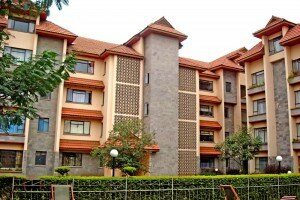Kenya : Is There Piracy Link in Real Estate?

Ibrahim Mwathane
15 February 2010
At a recent FAO meeting on governance of land tenure in London, I went on alert when the session moderator suddenly averred that Kenya’s liberal real estate market could be a boon to the Indian Ocean pirates.
This wasn’t easy for a mixed audience with only a handful of chaps from eastern Africa.
But it’s easy to see that because of its geographical proximity and porous northern border, Kenya perhaps comes only second to Somalia as a suitable investment destination for piracy proceeds from the Indian Ocean.
Other attractive destinations include the neighbouring States of Eritrea, and Ethiopia. Perhaps Southern Sudan too. And piracy proceeds come big. Always in mega dollars.
A while back I listened to a pirate speaking on BBC radio who added an interesting philosophical twist to piracy.
After bragging about his increasing piracy driven wealth, he went on to justify the means.
He said that they used to derive their earnings and livelihoods from fishing in the Ocean.
Then suddenly huge modern fishing vessels from afar invaded their waters, scooping large numbers of fish. Little was left.
They therefore decided to turn any foreign vessels in their waters into “their fish”.
And it paid off tremendously, he said. It’s good money and they are now a happy lot, the pirate said in conclusion.
Trouble is that these guys don’t gather the wider implications of their “fishing” to the region.
The shipment of crude oil and other consumer goods to Eastern Africa is in jeopardy.
I am told that insurance premiums for ships and tankers headed here have gone burst.
These costs are passed on to consumers.
Somebody also pointed out that delivery delays on some sensitive medical products renders them obsolete right in the high seas.
This spells financial loses and adverse exposure to the health of Eastern Africa populations.
But ironically, there’s anecdotal evidence that some of the piracy proceeds could be finding their way into Kenya’s real estate market, providing an unfortunate impetus to the Indian Ocean piracy.
Areas of choice have been Nairobi and Mombasa.
But the ripple effects may have hit the rim of Nairobi’s satellite towns.
In Nairobi’s Eastleigh Estate, investors and land owners give accounts of properties selling for twice or thrice their true market worth.
There are also accounts of proposed subdivisions getting called off after receipt of offers way above what the resultant plots would fetch.
And payment is usually prompt and in cash.
In a number of the posh estates too, some property agents give accounts of fairly juicy offers to properties that would otherwise go for fairly mundane sums.
The high-end property market is subsequently somewhat distorted in Nairobi and Mombasa.
Some sale prices just don’t add up.
Interestingly, diligent retrospective analysis will show that these super-scale buys coincide with the onset of piracy.
By the time local whimpers hit government, many properties had changed hands in this way.
In a rather late gesture, the Office of the President recently called for a property audit in the Kenyan capital city of Nairobi and in Mombasa, the port city.
Unfortunately, our current property laws are rather liberal and do not obligate the declaration of source of funds during purchase.
The laws are also easy fodder to foreigners out for mischief.
At worst, they work through local proxies.
This market porosity helps to sanitize piracy proceeds and provides a stable investment destination, giving pirates reason to want to continue “fishing”.
Kenya must act swiftly and firmly here.
Piracy proceeds mustn’t be allowed to drive our property market.
—–
Allafrica
Comments
comments
 Calendar
Calendar




































